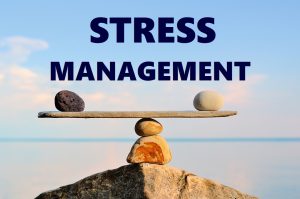Daily habits such as getting enough sleep, exercising regularly, meditating and eating healthily all contribute to maintaining mental wellbeing as well as acting as effective coping mechanisms against stress.
Diet and exercise can play an essential role in improving mood and cognitive function, with regular physical activity helping relieve stress while increasing endorphin levels and staying hydrated through drinking plenty of water throughout the day.
1. Get Enough Sleep
Mental clarity is an essential component of overall health and wellbeing, helping you think clearly and make decisions without becoming overwhelmed or distracted.
If you are experiencing difficulty maintaining mental clarity, try incorporating some of these daily practices into your life. They may help reduce stress levels while simultaneously increasing cognitive function.
Sleep is essential to maintaining mental clarity and managing stress effectively, so set a regular sleep schedule in an ideal sleeping environment to get maximum restful slumber. Hydration also plays an essential part in achieving mental clarity – be sure to drink plenty of water and herbal teas that contain relaxing properties for maximum clarity!
2. Practice Mindfulness
Mindfulness meditation involves focusing on your breath and being present to whatever’s happening at any given time. While mindfulness won’t solve all your stress woes, it can help break free of self-defeating habits and alter how you react to stressors.
Mindfulness practice also can help increase body awareness and decrease pain sensitivity, improving your sense of well-being and making it easier to cope with long-term stress effects on health.
Take some time each day to practice mindfulness – whether that means enjoying your morning coffee, showering, washing the dishes or spending time with loved ones.
3. Exercise
Exercise has numerous physical health advantages, as well as psychological ones. Exercise helps combat the negative impacts of stress by building self-esteem and decreasing anxiety, bad moods and depression.
Exercise helps clear your mind by forcing you to focus on one task at a time, like running, playing racquetball or walking. Exercise provides an escape from everyday stressors and lets you gain control.
If the idea of adding physical activity into your routine seems intimidating, start small and gradually increase it over time. Maybe start by setting aside three lunch-hour walks each week or doing online fitness videos two evenings each week as part of your agenda – then stick with it by scheduling these activities into your calendar for weekly reminders.
4. Eat Well
Diets that include fruits, vegetables, protein and healthy fats provide vital nourishment for optimal brain functioning and can significantly decrease stress levels.
Be sure to drink enough water throughout the day in order to remain hydrated, while limiting junk food, caffeine and sugary beverages. Eating regularly also helps stabilize blood sugar, improving both mood and cognitive performance.
Prioritizing sleep, exercising, eating healthily and cutting back on caffeine are all effective ways of managing stress effectively. If you are suffering from anxiety or depression however, seeking professional counseling to learn how to cope effectively may also help – the right therapy may provide mental clarity and emotional stability.
5. Take Time for Yourself
Self-care is essential to improving mental wellbeing. Even small changes such as getting enough restful sleep, practicing mindfulness meditation, eating well and engaging in exercise can have a tremendous effect on one’s mental wellbeing.
Find something enjoyable to do or a hobby you enjoy can be an excellent way to alleviate stress. Try reading, journal writing, playing an instrument, taking a walk or even getting massage therapy – whatever works for you!
Spending time alone is also vital to rejuvenate and relax, as this can stimulate creativity – just ask Thoreau, Georgia O’Keeffe or Hemingway! Laughter can also reduce stress and lift spirits; try watching comedy movies or laughter yoga for maximum effect.
6. Practice Gratitude
By taking time to show our appreciation of people and things – even in small ways – we can find much greater happiness and relaxation. Research has demonstrated how gratitude reduces stress hormones while simultaneously shifting attention away from negative emotions toward more positive ones.
Reminding ourselves to count our blessings is one way we can practice being grateful. One strategy would be keeping a gratitude journal, or counting them at the end of each day.
Try to recognize moments of appreciation as they happen, like feeling the warmth of sunshine on your face or that first sip of coffee in the morning. This approach may prove more powerful than writing down gratitude lists in a journal; plus it allows you to connect with loved ones both personally and remotely for support.
7. Connect with Others
As important as it is to maintain relationships with friends and family, making new acquaintances can also help reduce stress levels and provide a sense of community. Connecting with people who share interests can reduce anxiety while giving you a sense of belonging.
Studies demonstrate the positive benefits of laughter on stress reduction and mood enhancement. Watch an amusing movie or gather with people who can make you chuckle to get your dose of humor!
Volunteering is another wonderful way to foster relationships and foster resilience. Studies show that helping others reduces your own problems while increasing resilience; even small acts of kindness such as buying someone a coffee or writing an encouraging note on their receipt can have a lasting effect.
8. Talk to a Psychiatrist
At times, anxiety and stress can become overwhelming. If these feelings continue for too long or become chronic, seeking professional assistance should be considered advisable.
Talk therapy is one of the most effective treatments for mental health disorders such as anxiety and depression. Psychotherapy may also be combined with medication management in treating these conditions.
Whenever seeking treatment from a psychiatrist, make sure they are someone you feel comfortable confiding in and trust. Your first appointment will involve discussing their approach to treatment as well as answering any queries that arise from it.




